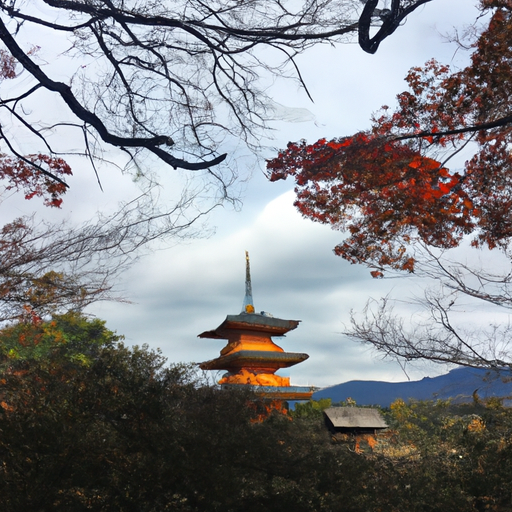Exploring the Beauty of Kyoto: A Travel Diary

Exploring the Beauty of Kyoto: A Travel Diary
Japan—A land of contrasting elements, where time-honored traditions exist harmoniously beside hyperactive modernity. If Tokyo is the country’s booming heartbeat, Kyoto is its soul, radiating the essence of Japanese culture and tradition. This age-old capital of Japan, encapsulating the beauty of the Land of the Rising Sun, is the epitome of tranquility and serenity. Follow along on this journey to Kyoto, a city that effortlessly portrays its historical charm through Archbishop shrines, ethereal landscapes, and otherworldly pathways.
Fushimi Inari-taisha: Kyoto’s Iconic Orange Gates
Fushimi Inari-taisha, situated at the base of the Inari Mountain, boasts thousands of vermilion torii gates forming a network of trails into the forest behind. Each gate is a donation from an individual or Japanese business, symbolizing a testament of faith. The hike to the summit is rewarding enough with breathtaking views of Kyoto, making this one of the top ‘must-see’ locations.

Arashiyama Bamboo Grove: An Ethereal Escape
Famed for its tranquil ambiance and towering bamboo stalks, the Arashiyama Bamboo Grove is a sensory delight. A gentle breeze stirring the bamboo trees creates an utterly magical serenade for the ears. Meanwhile, the soft light filtering through the bamboo canopies serves a gentle feast for the eyes. This bamboo forest is emblematic of natural beauty unique to Kyoto.

Kinkaku-ji: The Golden Pavilion
Covered in gold leaf, reflecting stunningly on the surrounding pond, Kinkaku-ji is an irresistible beauty. This Zen Buddhist temple, initially constructed in 1397 as a retirement retreat for Shogun Ashikaga Yoshimitsu, is a masterpiece of Japanese gardening and architecture. Be ready to be struck by awe and wander as you move around the mirror pond, taking in the reflecting beauty of the Golden Pavilion.

The Philosopher’s Path: Tranquility Personified
The Philosopher’s Path, a cherry-blossom-canopied canal path, offers a serene walk in Ginkaku-ji’s eastern mountains. Named for the 20th-century Kyoto University philosopher Nishida Kitaro who meditated while walking this route, it brims with classical charm and tranquility. In spring, the path’s blooming cherry blossoms create a soul-stirring spectacle.

Nijo Castle: A Symbol of Power
Nijo Castle, built by Tokugawa Ieyasu, one of Japan’s most prominent shoguns, stands as a symbol of the Shogunate’s power and wealth. The castle’s beautiful mural paintings and “Nightingale floors” (designed to chirp like birds when walked upon as a security measure) offer a fascinating glimpse into Japan’s feudal past.

Kyoto is a place that holds ancient stories and timeless beauty in every corner. It serves as a testament of time where the modern world gracefully intertwines with profound tradition. Whether it’s the mesmerizing vermillion gates of Fushimi Inari-taisha, the calming sways of bamboo groves in Arashiyama, the radiant gold leaf of Kinkaku-ji, the serene Philosopher’s Path, or the omnipresent legacy of Nijo Castle, Kyoto beckons those in the search of history, culture, and breathtaking natural beauty.
Conclusion
Following the unique rhythm of life, Kyoto sings an enchanting song of tradition and tranquility. This city is an open diary, inviting you to embed your experiences on its sacred pages. Each day spent here promises a new chapter of unforgettable memories and experiences. So, when are you planning to start your Kyoto travel diary?

* The post is written by AI and may contain inaccuracies.






